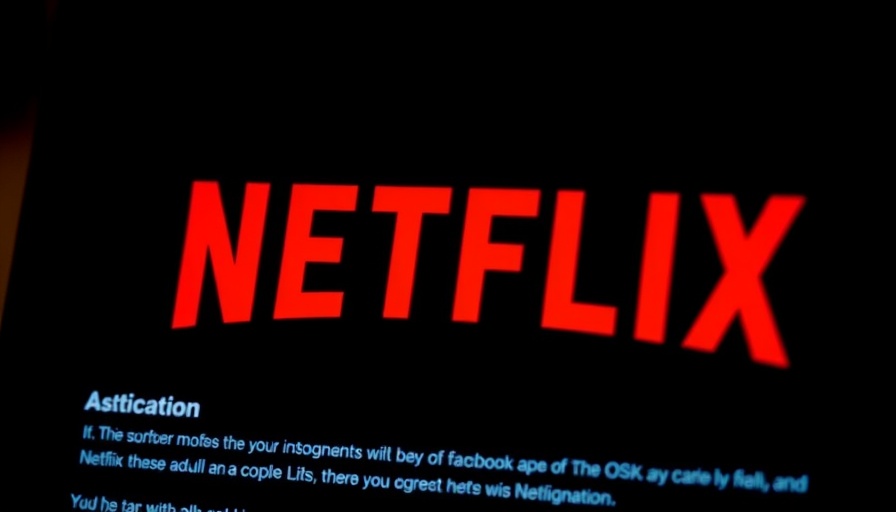
Job Seekers: A New Target of Cyber Crime
In a concerning twist in the world of online security, a recent phishing campaign disguised as a Netflix job recruitment effort has emerged, specifically targeting marketing and social media job seekers. This development highlights the urgent need for vigilance in safeguarding personal information on the internet.
The Mechanics of the Phishing Attack
This phishing scheme prompts victims to enter their Facebook login details, luring them with the promise of job opportunities at Netflix. Attackers exploit the reputations of reputable companies to manipulate job seekers seeking work in a challenging market. By emulating well-known brands, cyber criminals can deceive even the most cautious individuals.
Understanding Phishing: A Growing Threat
Phishing attacks have evolved substantially, with more sophisticated techniques used to capture sensitive information. According to a report by the Anti-Phishing Working Group, phishing attacks are on the rise, driven by the ongoing pandemic and the increasing reliance on digital platforms for job searching. Knowing how these attacks operate can help job seekers navigate their online interactions more safely.
Recognizing Red Flags in Job Offers
It’s crucial for job seekers to be aware of common indicators of phishing scams. These include unprofessional email domains, requests for sensitive information, and poor grammar or spelling within communications. Whenever a prospective employer requests personal details or passwords, it’s wise to verify the legitimacy of the offer through additional channels.
Protecting Your Online Identity
The repercussions of falling for a phishing attack can be devastating, not just on a personal level but also for one's professional reputation. Job seekers should implement robust security measures, such as two-factor authentication and regular monitoring of their social media accounts. By proactively defending against cyber threats, individuals can better protect their online identities and maintain their reputations in the competitive job market.
Cultivating a Culture of Cyber Awareness
As the phishing landscape becomes increasingly multifaceted, fostering a culture of awareness is vital among job seekers and employers alike. This shift in mindset can be achieved through educational workshops focused on cybersecurity practices and the impacts of reputation marketing in the digital era.
Staying informed about the latest cyber threats enables job seekers to make smarter decisions regarding their personal information. By being wary and informed, individuals can mitigate the risk of falling for harmful scams.



Write A Comment